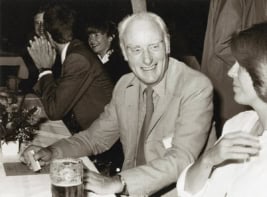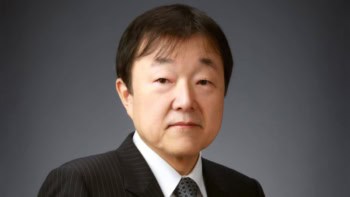Salvator Roberto Amendolia is the scientific attaché to the Italian Embassy in London

Why did you originally choose to become a physicist?
When I was 13, I read a science book for young boys, and I remember being fascinated by the descriptions of particle physics, especially of parity violation (though the level was, of necessity, far from elementary). Peculiarly enough, the last particle-physics experiment I did dealt with charge–parity (CP) violation in B-mesons, which was exactly the topic discussed in the book. I went on to study physics at the Scuola Normale Superiore in Pisa, Italy, from where I obtained both my undergraduate physics degree in 1971, and the equivalent of a PhD in particle physics three years later [PhDs did not exist in Italy at that time].
How did your physics career progress after that?
After obtaining my doctorate, I did a postdoc at the University of Pisa, and I stayed there as a researcher until 1986. I then moved to the University of Sassari to become an associate professor and then a full professor. My research activities were conducted mostly abroad, however, mainly at places like CERN and Fermilab.
How did you end up in your current role?
During my last 15 years in academia I also carried out research into the applications of physics technologies such as electronics and computer science to different fields, mostly to the biomedical and energy sectors. This brought me in closer contact with the industrial world, and brought technology-transfer issues to my attention. I joined the Italian Embassy partly for personal reasons and also because I wanted to try something new. I had over 30 years of basic and applied research behind me, so I thought I could survive few years without a daily dose of physics.
What does your new job involve?
I mainly organize bilateral workshops on scientific subjects such as energy, medicine and nanotechnology, which cover themes politically relevant to both Italy and the UK. For example, in early 2006 I arranged a workshop on clean-coal technologies and climate change. These events are attended by representatives from governments, industries and academia. I also set up higher-education courses that bring together universities from the two countries, as well as organizing seminars of distinguished Italian scientists and acting as a link between the Italian Ministry of Universities and Research and the many Italian scientists working in the UK.
How does your physics background help the way that you work?
Physicists are good at framing problems in simple terms, and at approaching solutions in a pragmatic way. They also have strong mathematical skills and a good knowledge of basic natural processes. If, like me, you are lucky enough to have attended good universities and collaborated with smart people, then you gain “vision”, which is instrumental in tackling all sorts of different problems. It makes it easier to understand the basis of sciences other than physics, to learn from evidence, and to deal with aspects of science (like its application to industry) that are not normally taught in a university course. All this allows me to carry out the job of scientific attaché in a proactive way.
Do you still keep up to date with any physics?
I am still in touch with former physics colleagues. I read scientific literature whenever possible, and I try to attend conferences, though mostly on the application side rather than on blue-sky research.



